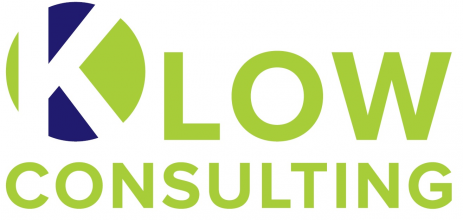AI (artificial intelligence) is hard to ignore. It is being introduced into most applications, software and even in smart technology that we use in the home every day.
It is also being used by many workplaces to streamline operations and increase productivity.
Unsurprisingly, we are seeing some organisations use AI programs and websites, such as ChatGPT, Pilot and Gemini, to write their tender bids.
Is this a great time-saving tool? Or will the use of AI in a tender bid result in your bid being unsuccessful?
Being strategic
The writing stage of a tender bid is only a small part of the tender process. So much work has already happened before you get to that stage.
For example, at K Low Consulting, we use a Four‑Phase process that starts with building a contract strategy, followed by opportunity analysis – something that AI cannot do.
By all means, you could attempt to upload a contract opportunity and a business plan into an AI tool to perform an analysis and judge whether or not the opportunity aligns with wider business goals. But, all this will do is pull out key words. There will be no critical or strategic thinking that you would get with a team of experienced tender experts.
Working collaboratively
When working with our clients, we also project manage a bid, creating a clear timeline which drives the entire process. This is essential and allows everyone involved to work collaboratively and know and understand their roles, responsibilities and deadlines in the process. Again, something that AI can’t replicate.
This collaborative process inevitably leads to conversations across the organisation and a sharing of perspectives and experiences. The various questions in the tender documents can be viewed through different lenses, and everyone will have something different to add to build a really strong tender bid.
We have a strong focus on a collaborative process with our clients and work as partners at every step, ensuring that an exceptional bid is submitted on time, every time.
The writing process
The bid writing process is closely monitored at all stages to ensure that each question presents correct information and is compellingly written to score the highest points possible. We maintain an open dialogue with clients, ensuring that no critical detail is missed. We will proactively engage with the identified key contributors in an organisation, or other essential stakeholders, to gather the key information needed to create a winning bid.
We also have the ability to draw out and analyse the right evidence to strengthen a bid.
For example, social value is becoming a huge part of the tender process. We could look at a vague business history question through the prism of social value and include general information on the organisation that also gets across its contribution to society, its local community and the environment – something AI would not think to do.
Much of the information we uncover when working with a client is not widely available on the internet either, so AI would not be able to find it, leading to a weak bid that doesn’t put the organisation across in the best possible light.
Each tender bid we work on also goes through various checks and reviews. To ensure the very best quality, each tender response we write undergoes internal peer review. We also have access to specialist expert advisers who are able to perform an additional panel review, where we feel this would be appropriate.
Submission
Once we have listened to any feedback and recommendations and everyone is happy with the bid, we support our clients with the submission process to ensure a fully compliant upload and submission. As we submit hundreds of bids, we have an excellent understanding of the idiosyncrasies of all public sector tender portals. Support at this stage minimises the risk of anything going wrong or any criteria not being met.
Breaching data laws or procurement rules
It is also worth mentioning that uploading sensitive company information into AI tools brings risks of breaching data protection laws or procurement regulations.
Some public sector tenders now ask those submitting bids to disclose if their have used AI as part of the process, so blindly submitting AI-generated content without declaring it or being transparent can mean your submission is penalised or even disqualified.
In summary, AI does have its place and can bring many benefits but it won’t bring the human touch of a case study or the real impact of an initiative to life. It won’t think strategically or bring your organisation together and it certainly won’t stand out against your competitors.
If you are struggling with knowing where to start on a tender bid, it is time to call in the experts to help – not AI.
Talk to a member of our bid writing team to see how they can help on 0330 133 8823 or email info@klowconsulting.com.

